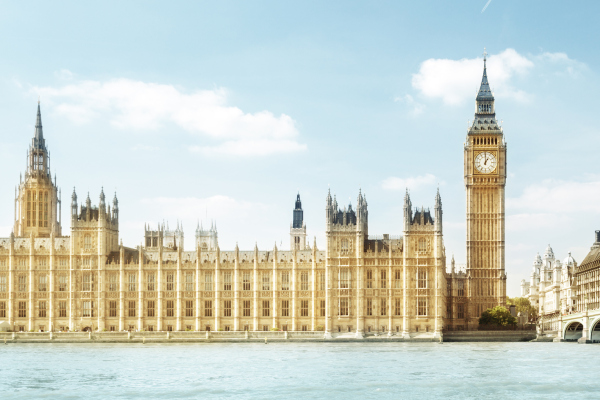Nine out of 10 school staff feel children and young people’s education is suffering due to a lack of mental health support, according to our survey.
More than 90% also agree the need for school counselling has risen since the start of the pandemic – but only one in 10 say funding has increased.
The research aimed to give greater understanding of the provision and funding of school counselling – and the impact an in-house counsellor has on school communities. It's part of our campaign for a paid counsellor in every secondary school, academy and further education college in England. Scotland, Wales and Northern Ireland all have government funded school counselling services - England does not.
Data from this survey will shape future campaigning and help us highlight the need for paid school counsellors to MPs, policy-makers and funders.
Jo Holmes, our Children, Young People and Families Lead, said: "These findings give us valuable insight into how schools and colleges are desperately trying to meet their students' mental health needs, often on a shoestring.
"Nearly all face rising demand for counselling because of the pandemic – and it’s unacceptable that many are not receiving additional funding or resources.
"We know there are trained counsellors who have capacity to work in these roles. Funding is urgently needed to provide this life-changing support for young people in need."
Access to school counselling
Of all respondents from schools and colleges:
- 73% said their school offered in-house counselling on site
- 89% said children and young people’s education is suffering due to lack of mental health support
- 64% don’t feel their school offers students enough mental health support
- 96% agreed students should have access to counselling before issues become critical
"It’s horrifying to see the impact that lack of mental health support is having on children and young people's lives, education and future prospects. While it’s good to see 73% of secondary schools offer in-house counselling, that still leaves more than a quarter of schools – and millions of young people across the country – without access to a school counsellor."
Jo Holmes, BACP Children, Young People and Families Lead
Increase in demand
Since the pandemic, of those respondents whose school or college offered counselling:
- 95% said demand for counselling had increased
- 12% said funding available for counselling had increased
"Demand for counselling in my school is high and growing. COVID-19 put families under immense pressure and cracks appeared which previously might have just been manageable. The climate crisis, war in Europe and the cost of living increase, along with the enormity of transitioning from child to adult under the image-conscious lens of social media popularity and status, create the perfect storm for adolescent stress and anxiety."
Sally Champion, a school counsellor and member of our expert reference group
Positives of school counselling
Of the respondents whose school or college offered counselling:
- 86% said it helped some students stay in education
- 66% said it helped reduce school or college refusal
- 74% said it helped improve attendance
- 73% said it helped improve behaviour
- 72% said it helped improve academic attainment
"It enables children to talk independently from home and school in a secure and safe place."
"Easy access, far shorter waiting lists."
"It provides a really accessible service to vulnerable students. It has been excellent in providing extra tailored support that pastoral staff would be unable to offer."
"Early intervention is always best and preventative rather than reactive is more desirable - if we act now it can help to prevent a future mental health crisis later on."
Impact on the whole school
Of those respondents whose school or college offered counselling:
- 92% said it contributes to the school's pastoral and nurturing ethos
- 66% said it allows teachers to focus more on teaching
- 72% said it eases the workload of pastoral care staff
- 75% said they would refer students to the school counsellor
"We've had counselling provision in our school for close to 20 years. It’s an integral part of what we do. Students are used to that support being available.
"I strongly believe having easily accessible counselling available in school supports good mental wellbeing. It helps more students continue to access school who might otherwise school refuse or opt for elective home education. Good mental health supports good progress in lessons."
Simon Grieves, headteacher, Chapel-en-le-Frith High School, Derbyshire
Funding
Of those whose schools fund counselling:
- 44% said the money comes from pupil premium, 22% from COVID catch-up premium and 13% from capital funding
Of those whose schools offer counselling but don’t fund it:
- 17% said the money comes from the third sector, 14% from clinical commissioning groups and 14% from Social Emotional Mental Health (SEMH) funding
Of those whose schools have never offered in-house counselling:
- 70% say it's because they don’t have the funding or budget
Of those whose schools used to offer in-house counselling but don't now:
- 50% say it stopped because funding was stopped or reduced
"Our counselling service is funded directly from the school budget and the pupil premium grant. Governors support the aspiration for good mental health and have made it a priority for the school. They are therefore willing to support this spending. However, this always means making difficult decisions in these times of stretched school budgets.
"In our view every child should have access to counselling in school, in the same way that every child has a statutory right to careers support. Funding to make this possible should be provided."
Simon Grieves, headteacher, Chapel-en-le-Frith High School, Derbyshire
"We believe there are huge benefits for young people, school staff and the wider health service in having access to school-based counsellors. It is clear that the need for trained support is there and is growing. Investment in school-based counsellors and early intervention could help to prevent many young people reaching crisis point."
Dr Patrick Roach, NASUWT General Secretary
The future of funding
- 96% agree funding for mental health provision for students should come from Government
- 89% agree additional funding for mental health provision in schools should be ringfenced so they can buy in services
"The Government's investment in Mental Health Support Teams still leaves huge gaps in adequate provision for those with more complex needs and who don’t meet the threshold for Children and Adolescent Mental Health Services (CAMHS). We need clear referral pathways for these young people who are falling through the gaps in support. This has to be part of a step-care approach which includes offering appropriate levels of support depending on presenting needs. Having a counsellor in every school ensures easy access to this vital support which makes a profound difference in young people’s lives."
Jo Holmes, BACP Children, Young People and Families Lead
"The stark findings from BACP’s survey echo Place2Be’s experience working in schools around the country. Many children and young people are in distress, but are not always able to access timely support from local services. Schools are keen to provide the best possible early mental health support for children and young people. However, funding is increasingly stretched across the education system, with no dedicated education funding for mental health and wellbeing support. Based on our experience of working within school communities over the last 27 years, and providing effective evidence-based mental health support, Place2Be would urge for long term investment to resource early intervention in schools."
Catherine Roche, Chief Executive of Place2Be
Survey information
The survey was carried out between November 2021 and February 2022. Total sample size was 319.
69% of respondents worked in secondary education, 25% in primary education and 5% in further education. Other categories included junior, infant, first school and all through school.
56% of respondents were from academy schools, 20% from local authority schools and 10% from independent schools.
Thank you to all the organisations who shared our survey with school staff – including the Association of School and College Leaders, the NAHT and NASUWT, Education Support, the Charlie Waller Trust, Young Minds, Kooth, Place2Be, and the Association of Colleges.

School counselling in England campaign
We believe that a paid counsellor should be available in every secondary school, academy and FE college in England.

Influencing decision makers
We work with with politicians and decision makers from all four nations to help them understand the positive changes that counselling can make to people's lives.

News from BACP
Read our recent press releases, statements, campaigns and news for members.

